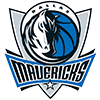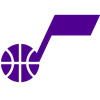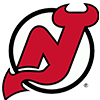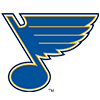Change is in the Wind
"You were already dead, you just haven't caught up yet." -Shen, League of Legends Champion
League of Legends is changing. Gone are the days of games being decided by a brilliant early game outplay. Gone are the the days of a single player standing so far above the rest so as to singlehandedly lay low their teams foes. Once, the barrier between a great team and mediocre one could be seen in their mechanics, with the better team simply being able to utilize their champion's inherent abilities better. Now, a new barrier separates teams, one that is much more difficult to climb: strategy.
In mid season 2, League of Legends would forever be changed by the invention of the lane swap. Teams would opt to avoid a poor top-lane matchup by simply sending their top laner in to the bottom lane and forcing the enemy top laner to do battle 1-vs-2. To modern fans, this might be nothing new, but at the time the idea was not only revolutionary, it was meta-breaking. It completely changed the metagame of the top lane, as now the possibility of a lane swap made a champion like Irelia, who has precious few options in a 1-vs-1, seem much worse than before.
Last year, though, lane swapping once again underwent a revolution, and if the last one was meta-breaking, this one may prove to be outright game-breaking. For us analysts in the West, spring of 2015 would be a turning point in the way League of Legends is played, where teams transitioned away from attempting to simply outlane each other and win via force. The underlying reason for this is simple and obvious to those who work in the amateur leagues: the mechanical skill gap is closing. I still remember when Patrick "MegaZero" Glinsman first popularized Malphite, and how skilled players would wow crowds by flashing over Unstoppable Force, then proceeding to clean up a fight. Now, even in the Challenger circuit, we shrug our shoulders and simply say that we expect all ADC's to be able to do similarly. We expect all Lee Sin's to be able to perform an "InSec" kick. We expect every Azir to be able to perform a "Shurima Shuffle". Every player who dreams of being a pro must now be able to do these things simply to not get labeled as a waste of a roster slot. Long-time veterans like Henrik "Froggen" Hansen were now getting shown up by players like Isaac "Pepiinero" Flores, who was straight out of the Challenger circuit. It was clear that skill was no longer sufficient in itself.
Upping the Ante
"The early bird guts the worm." -Swain, League of Legends Champion
To make matters worse, right when this skill gap was being closed, big investors were entering the League scene. Teams like Elements, which was forged of all veteran players, were expected to dominate their leagues with their combination of untouchable talent and big sponsorships. Then, something weird happened. They didn't. While Elements is not the only example, it is one of the most obvious for Western fans, as the team that was a favorite going into the split ended up mid-tier at best, certainly behind the newly risen H2K.
Why, then, did these teams with the greatest talents fail? What has changed? Just the closing of the skill gap wasn't enough to explain the disparity between expectation and reality, as these other teams also wielded another, infinitely more insidious weapon.
Europe's 2015 regular season Spring Split was completely controlled by one team: SK Gaming. They introduced the West to a new style of laneswap, one that ignored individual lane matchups and instead focused on what we now call the fast push: using the entire team together to quickly take down an objective in the early game, there by earning a gold lead. It was this tactic that has gone on to define the next three splits of competitive League of Legends.
On the surface, the fast push is both simple to understand and simple to execute. The ADC builds up a large wave, and when that wave reaches the turret he is joined by every teammate excluding the mid laner, at which point the team takes the turret. While this is a simplification, it's also the concept at it's basic level. This simple idea, however, has led to the mindsets of players flipping entirely, for one main reason: it's now possible to all but win the game within the first five to ten minutes, with the rest of the game being but a formality. See, while the fast push is very easy for players to understand once it's in wide adoption, it's much tougher to execute, where the chaotic action can often make it hard to both analyze and communicate effectively. Suddenly, teams like SK Gaming were able to, more or less, execute one scripted part of the early game and earn a 1,000 gold lead not by their own action, but by the mistakes of their opponents.
That last concept is key, and is part of why any of my work with an amateur team begins with intensive drilling of laneswaps. If one team is well-versed in their executions and performs a swap on a team that isn't, that team will end the first five minutes of the game with both a gold and tempo lead, which they can easily exploit to earn subsequent small advantages later in the game. In effect, the fast push has broken the risk versus reward curve that games such as Leagues are built upon. For a skilled team the best result out of a lane swap is an instant win, while the worst is having the swap be called and having to play out the game as normal, with each team simply on even footing. Before this split, leads such as these came only from stellar outplays, ganks, and the big early game skirmishes that make the game so exciting to watch.
Now we are in the midst of a new arms race. Where once teams called for only the most mechanically gifted players, teams are instead looking for players who can lead teams and have a keen mind for strategy, like Bora "Yellowstar" Kim, Hai "Hai" Du Lam or Cho "Mata" Se-hyeon. The last split has seen an incredible amount of innovation in strategy, with nearly every week showcasing a new way to react to the trends of the week before. If Season 1 was the ADC meta, and Season 2 the Bruiser meta, then Season 6 is shaping up to be the Macro meta, and teams that are failing to realize this are now finding themselves losing games before they've even begun.
The Art of Avoidance
"The spider, I. And you, the fly." -Elise, League of Legends Champion
For an analyst such as myself, and for those that enjoy the strategic elements of League of Legends, then, this is a wonderful time. In every game there is a new lesson, a new strategy, if only one looks deep enough. The viewership of League, however, is not composed of those that think like myself. Rather, we are a rather small minority, and it is for that reason that the current direction of League worries me.
As a case study, let us examine H2K, currently part of the trinity of European teams all vying for dominance. Ever since they entered the LCS they've been known for one thing above all: their fantastic macro. They are usually able to convert a lead by the ten or fifteen minute mark through their superior ability to rotate around the map, hitting their opponents where they're weak and avoiding them where they're strong. It's been commented by Pr0lly, H2k's head coach, that it's almost as though his team wishes to avoid the enemy team, since they know that they'll win if they are allowed to play their rotational game. If they face their opponents head-on, however, the prospects are less certain, and most of H2K's most notable defeats have been from them either opting into those fights, or being forced into them. Due to their success, it's logical to assume that much of EU is trying to emulate their style, which is why most of the top teams in the region now all focus on said rotational playstyle.
From the point of view of the player, then, the choice is obvious. If you can specialize in a style of play that has few risks attached, with the reward being both victory and acclaim -something that is ever more important in this new, financially booming eSports scene-, why would you not choose that style? Why not simply tangle the enemy team in your web, then make it their responsibility to fight their way out? Such a fight is bound to be one sided, for what can the fly do to resist the spider?
Of course, every team would choose this route if they could, and the elite teams have been moving in that direction. The issue comes from the fact that League, at least in its current incarnation, is so successful due to its applicability as a spectator eSport. When a normal League fan is asked about what they enjoy most about watching the game, you're likely to be told about some sick outplays and explosive teamfights. The popularity of Youtube and reddit links to videos highlighting such things reinforces the idea that the League populace as a whole is looking to see a game of action and excitement. Right now, though, that's often simply not the case, with winning teams rarely committing to anything that could be described as "action or excitement" until they're so far ahead that the result is certain.
This is not to say that modern League is boring, far from it. The pendulum is finally swinging away from brute force and into the realm of tactics, which is a good thing, assuming that it doesn't swing all the way. Were it to do so, Riot may soon find themselves without people watching the LCS they've put so much work into forming, as the goals of the players and the desires of the fans would simply be too far apart. As a devoted fan of this game, I hope that never occurs, but I would also be irresponsible were I to ignore the threat that is building.
I'll never forget watching the first League World Championship, an event filled with moments both exciting and action-packed. My sincere wish is that when I watch the final League World Championship, I see something equally thrilling, not a glorified game of keep-away.


















